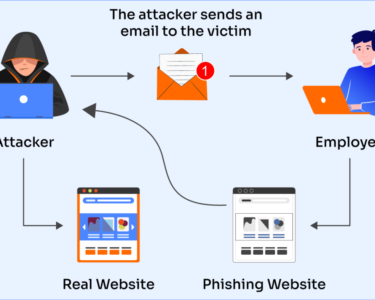
Understanding Digital Scams: A Guide to Protecting Yourself Online
In the ever-evolving digital landscape, scams have become increasingly sophisticated, targeting unsuspecting users with malicious schemes. Understanding these scams is crucial to protect your personal data, finances, and online safety.
Types of Digital Scams
- Phishing: Fraudulent emails or messages impersonating legitimate organizations, such as banks or government agencies, to trick victims into revealing sensitive information.
- Malware: Malicious software that infects devices and steals personal data, intercepts passwords, or tracks activities.
- Smishing and Vishing: Scams conducted via SMS or phone calls to deceive victims into providing personal information or funds by threatening consequences.
- Social Media Scams: Fake contests, giveaways, or impersonated accounts used to collect personal data or spread malware.
- Online Shopping Scams: Fraudulent websites or online marketplaces selling counterfeit products or collecting payment without delivering goods.
Red Flags of Digital Scams
- Unexpected Contact: Scammers often make unsolicited contact via email, text, or phone calls.
- Urgent Demands: Scammers create a sense of urgency to pressure victims into acting quickly.
- Suspicious Links or Attachments: Fraudulent messages often contain suspicious links or attachments that redirect users to malicious websites or download malware.
- Unprofessional Communication: Scammers typically use poor grammar, misspellings, and unprofessional language.
- Request for Personal Information: Scams often ask for sensitive information such as passwords, bank account numbers, or Social Security numbers.
Protecting Yourself
- Be Cautious: Don’t open suspicious emails or click on unknown links.
- Check the Sender: Verify the legitimacy of the sender before responding to emails or messages.
- Use Strong Passwords: Create complex passwords and change them regularly.
- Install Anti-Malware Software: Protect your devices by installing reputable anti-malware software.
- Be Vigilant on Social Media: Don’t accept friend requests from unknown people or engage with suspicious accounts.
- Shop Securely: Only trust established online retailers with reputable reviews.
- Report Suspicious Activity: Report any suspected scams to the appropriate authorities, such as law enforcement or the Federal Trade Commission.
Consequences of Digital Scams
Falling victim to digital scams can have severe consequences, including:
- Financial losses
- Identity theft
- Data breaches
- Damage to devices
- Emotional distress
Conclusion
Understanding digital scams is essential for safeguarding yourself in the online world. By recognizing red flags, protecting your personal data, and being vigilant, you can reduce your risk of becoming a victim. Remember, if something seems too good to be true, it probably is. Always err on the side of caution and never reveal sensitive information to unsolicited requests.



